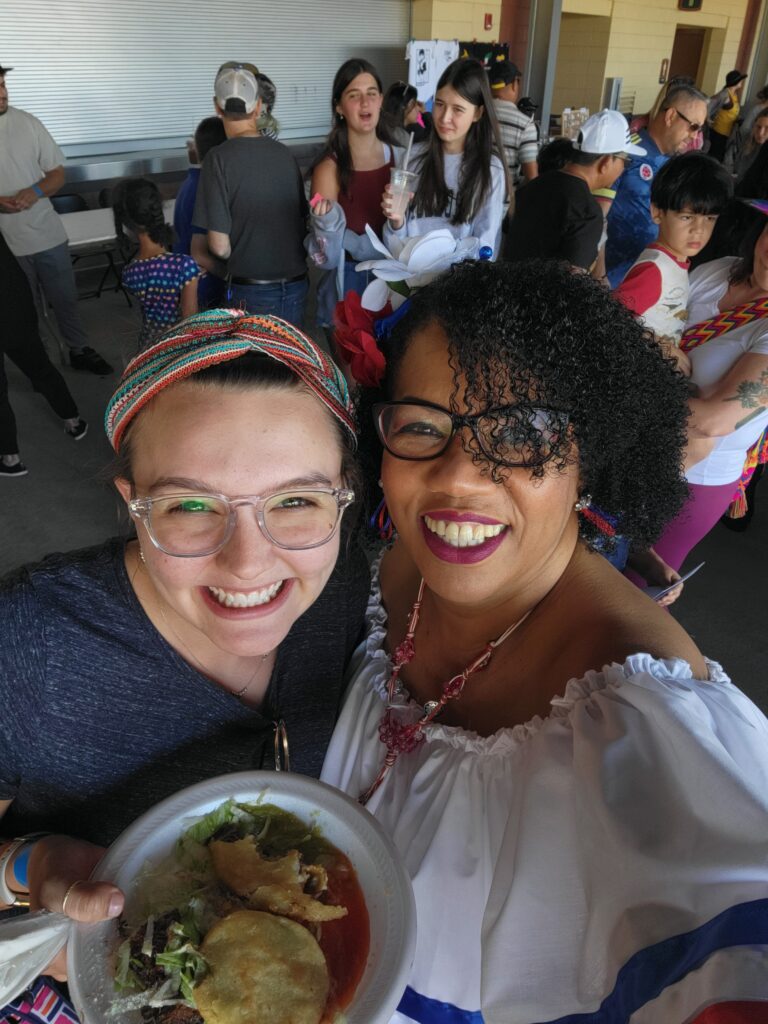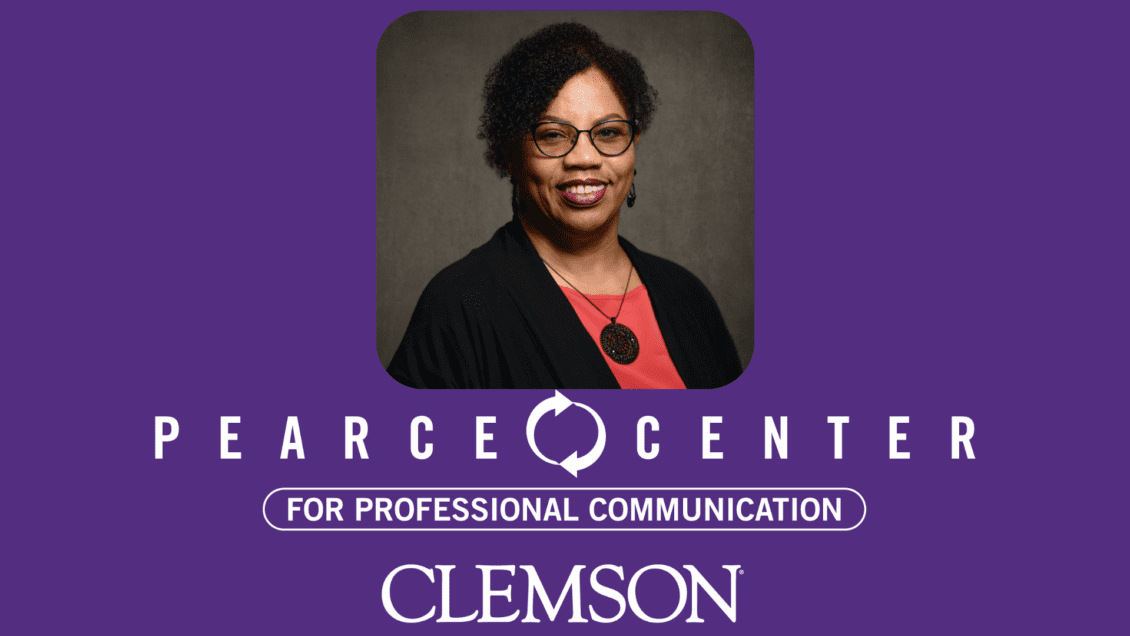A longtime supporter of the South Carolina Hispanic community has been recognized for her commitment to providing Clemson University students with the opportunity to improve the minority population’s health outcomes.
Arelis Moore, associate professor of Spanish and Community Health in the Department of Languages, is the recipient of the Pearce Center for Professional Communication’s 2024 Professional Writing and Communication Award. The award is given to one instructor per academic year who participated in either the Client-Based Program or the inaugural Service-Learning Faculty Fellows Program. It recognizes faculty going “above and beyond” to provide their students and community partners with an enriching learning experience, Pearce Center Program Coordinator Sarah Costley said.
“Dr. Moore has been an advocate for service-learning for 16 years. She and her students support the Latinx communities by providing information about healthy lifestyles,” Pearce Center Assistant Director Ashley Fisk said. “Dr. Moore does an amazing job of creating respectful and reciprocal relationships between her community partners and students. She is a true ambassador for why experiential learning is so beneficial to students and the surrounding community.”
Moore, who has taught at Clemson since 2008, is in the first cohort of the Service-Learning Faculty Fellows, a year-long development program that provides an opportunity for select faculty members. Fellows learn best practices in service-learning and community engagement, then integrate the lessons into teaching, research and public service work.

“I understood that the best way to expose and prompt students to use their technical language skills was through service-learning,” Moore said. “Service-learning puts them in the position of entering into direct communication with the populations we serve in the Upstate alongside these organizations.
“This experience is crucial as it teaches students about social determinants impacting Latino health, emphasizes acquired skills like cultural humility and community engagement and underscores the importance of addressing these barriers to help Latinos overcome challenges.”
Born in the Dominican Republic, Moore grew up speaking Spanish and learned English as a second language as an adult. She said she recognized the importance of being fluent in both, especially when she had to write research papers in her doctoral studies. Moore’s Health and Hispanic Community (SPAN 4190) class partnered with the Hispanic Alliance, PASOs and AHAM.
Each student completed two service-learning activities, which included assisting mobile vaccination clinics, community educational and health fairs, the Hispanic Heritage Festival and a lunch and learn to promote Latino enrollment in post-secondary education at several area high schools.
“My students are putting into practice what they’ve learned in the classroom,” she said. “We’ve been very successful in having students in our Spanish and International Health program find employment or in continuing into medical school and other health-related programs where they can continue advocating for Latinos’ health and well-being.”
Get in touch and we will connect you with the author or another expert.
Or email us at news@clemson.edu

